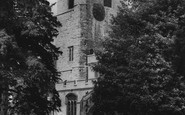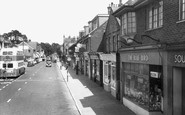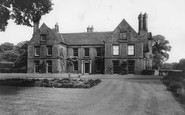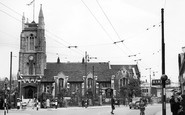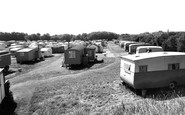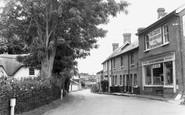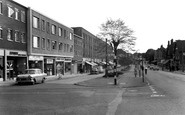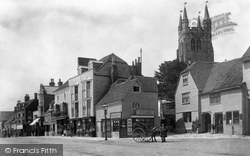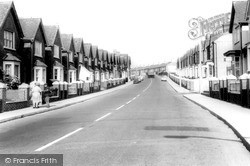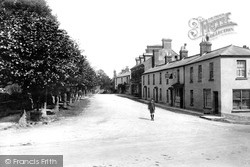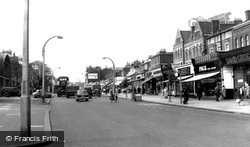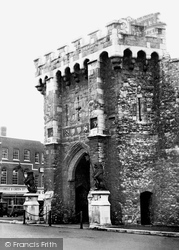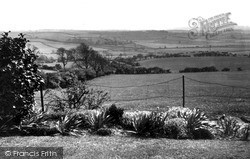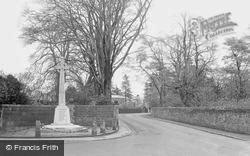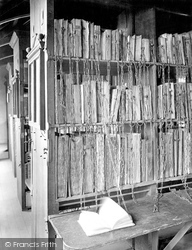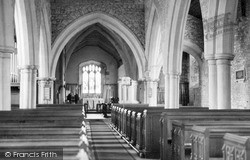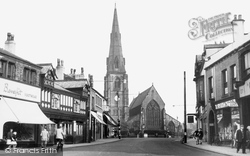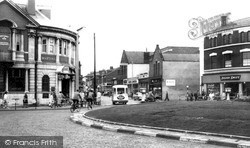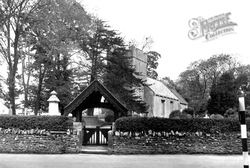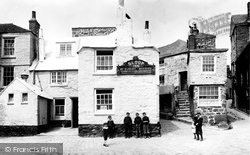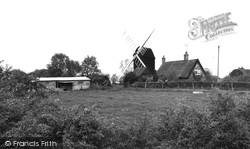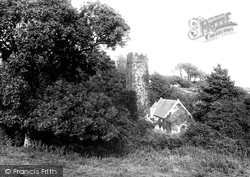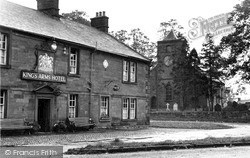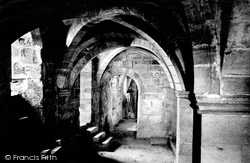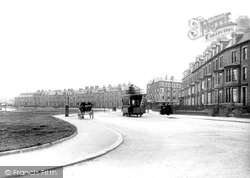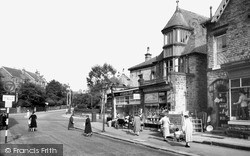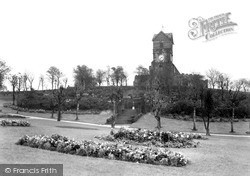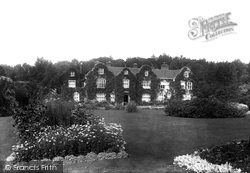Places
3 places found.
Those places high-lighted have photos. All locations may have maps, books and memories.
Photos
63 photos found. Showing results 1,861 to 63.
Maps
12 maps found.
Books
1 books found. Showing results 2,233 to 1.
Memories
7,565 memories found. Showing results 931 to 940.
Morning Service At St Mary's In The 1960s
Like many young folks of the 1960s who grew up in Cheshunt churchgate area, when the time came to marry you almost always chose St Mary's as the place to have your wedding. It is a lovely old church. I ...Read more
A memory of Cheshunt in 1965 by
Memories Of A Nurse
I came to work in Sulgrave in the 1980s. I worked for Major George Coombs who lives at Stonecourt on the Hedom Road. My first thoughts of the village were that it was very quiet and that the people were all ...Read more
A memory of Sulgrave in 1981 by
Shopping With My Mum In Heathfield...
I remember in the 1960s going to Heathfield with Mum on the bus (we lived at Corner Farm, Swife Lane). We would go shopping and often would go into the Bluebird. Seeing that name in this picture brought ...Read more
A memory of Heathfield in 1965 by
Back In The Day...
My gt-uncle, Thomas Higgs was a Footman here in 1911, although how the heck he got here from Spratton, Northants, where he was born is anybody's guess! I'd love to know.
A memory of Scawby in 1910 by
The War Years In Leytonstone
I have lived the past 43 years in Arizona, USA. Seeing the photo of St John's Church brings back many memories of my childhood in the Leytonstone area. During the blitz on London, going down the unfinished ...Read more
A memory of Leytonstone in 1940 by
I've Finally Found The Caravan Site
I spent many a summer at this caravan site. My Gran used to own a caravan there. I have so many found memories of the pace and even though last time I was there would have been about 25 years ago, I can ...Read more
A memory of Bridlington in 1870 by
My Mother Worked Here
My mother Mary Henley worked here, and later in 1957 we stayed here after moving back from Canada, I was 4. Mrs Bullock was the proprietor. I wonder where her son and daughter are today.
A memory of King's Somborne in 1940 by
Where I Grew Up
I was 4 years old when we as a family moved to no: 6, School Lane, Chase Terrace. We had moved from Wales because my father couldn't find a job there, so he had a job lecturing in the Mining College in Cannock and he also ...Read more
A memory of Chase Terrace in 1965 by
Dwyer's Newsagents
I used to cycle down to Dwyer's, the newsagents, with my brother to buy tins of coke, caps for our toy guns and comics (and half-penny chews). Dwyer's was in Brooklyn Parade, which is shown in this photo, I think it was two ...Read more
A memory of Loughton in 1967 by
Jenkins Family Church Knowle
This is not so much a memory, more of a request. Does anyone remember the Jenkins family from the 1950s - I believe the Rev Jenkins was vicar at St Peter's, Church Knowle at the time. I am trying to trace his son ...Read more
A memory of Church Knowle in 1955 by
Captions
2,471 captions found. Showing results 2,233 to 2,256.
The main body of the church dates back to the 13th and 14th centuries, and was here in 1180.
This kind of view is often found in this region - 19th-century terraces sprang up to house workers in the coal and iron industries - but Kenfig has a long history dating back to the Bronze and Iron
The lad may be returning from the castle, which could be approached on this road at that time. The four houses on the right, built in 1817, are now private residences.
Further north-east along the High Street, Frith's photographer now looks back in the Clapham Common direction past Cato Road (left).
Bargate was originally built to guard the main road into Southampton.
A royd is a northern name for an assart, a practice going back to medieval times when the population of a hamlet cleared land, usually sufficient to make one or two fields, for crops.They would sow
A royd is a northern name for an assart, a practice going back to medieval times when the population of a hamlet cleared land, usually sufficient to make one or two fields, for crops.
The squire here, Sigismund de Trafford of Croston Hall, said that he 'preferred trees to chimneys', and was opposed to selling land for industrial development.
This chained library is the finest in the world, containing books and manuscripts that date back a thousand years and more. Chaining the books was an important security measure.
The interior of St Andrew's is just as pleasing as the outside, with its four-bay nave arcades, quatrefoil piers and double-chamfered arches. These give a feeling of openness and comfort.
The Queen Anne Inn, to the right of Benefit Footwear (left), is much older, probably dating back to the reign of Queen Anne, as it appears on Heywood Hall Map of 1718.
Our photographer has his back to the ABC Carlton Cinema, which stood at this junction.
The church dates back to the Norman Conquest, but very little of the original church remains; the initial period of restoration in the 1820s dramatically altered its structure.
From the Bridge 1899 A town when the Domesday Book was compiled, and a settled place as far back as the 7th century, Fordwich was a flourishing port on the River Stour for Canterbury when the river was
This popular inn on the harbour at St Ives is said to date back to 1312. In the 20th century it became a favourite haunt of the St Ives artists' colony. There is now a small porch by the doorway.
This post mill is thought to date from the 17th century, and is perhaps the oldest working post mill in the country.
The church is dedicated to St Lawrence. The nave and chancel date back to the 12th century; the tower is 13th century.
Set back from the A66, the King's Arms with its stables and courtyard to the rear was once a coaching- house serving travellers on the Penrith to Darlington turnpike, a route linking the
Ripon Cathedral stands on the site of the Saxon abbey church of St Wilfrid, of which this crypt still remains. It dates from about 672, and is one of the oldest Christian survivals in England.
The southern part of Morecambe (referred to as the west end), towards Heysham, soon developed as the more genteel side of the resort, with smart hotels; it was thought to be a little superior.
Prices by the mid fifties had doubled on what they had been around 1946: a pound of sirloin cost 4s 2d, 3lb of flour 1s 3d, a dozen eggs would set you back 3s 10d and a pound of butter 2s 6d.
Prices by the mid fifties had doubled on what they had been around 1946: a pound of sirloin cost 4s 2d, 3lb of flour 1s 3d, a dozen eggs would set you back 3s 10d and a pound of butter 2s 6d.
St Leonard`s dates back to at least 1183 and it was largely rebuilt in 1414 and 1524. Its wooden steeple was added in 1709 and it is a rare and distinctive feature.
The manor house dates back to the 13th century, and formed part of a large estate. Its most famous resident was the poet Alfred Austin, who was Poet Laureate from 1896 to 1913.
Places (3)
Photos (63)
Memories (7565)
Books (1)
Maps (12)

